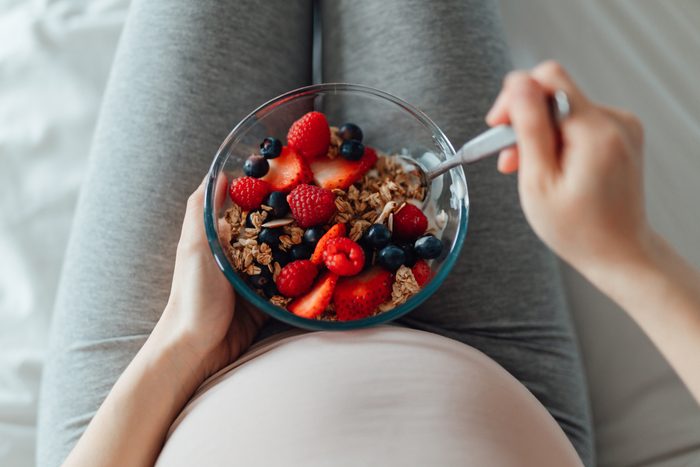
When you have your heart set on getting pregnant, just about any lifestyle tweak is worth a try. Experts say your grocery list can be the perfect place to start if you’re hoping to optimize your fertility.
Experts say that can start with cleaning up any poor choices you regularly make in your diet. For one, processed and ultra-processed foods can take a toll on your system and make conceiving a greater challenge. So, says registered dietitian Sue-Ellen Anderson-Haynes, MS, RDN, CDCES: “Starting with dietary changes to improve fertility will be a plus for most people.”
Acupuncturist and fertility coach Aimee Raupp, MS, LAc and author of The Egg Quality Diet agrees, and has observed this with her patients when they follow a fertility diet protocol that “helps reduce overall inflammation in the body, regulates the immune system, heals the gut and improves overall nutrient absorption—all of which will optimize hormonal production (in both females and males), improve cellular and mitochondrial function (think improved egg and sperm quality), and heal the gut—which is directly related to hormonal and mental health.”
Even better, this fertility diet protocol offers the exact right macronutrients that have been shown to dramatically improve pregnancy outcomes.
According to 2017 research, a diet that includes fish, poultry, whole grains, fruits and vegetables can improve fertility and sperm quality. Here, our experts got even more specific to revel exactly which foods make for the most promising fertility diet.
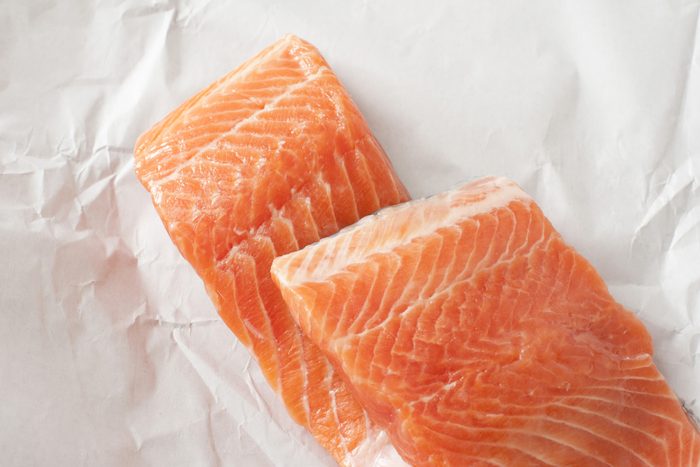
1. Protein
Protein is essential to the fertility journey, as it helps your body repair and make new cells. Raupp suggests including protein-rich foods like salmon, grass-fed meats, pastured eggs and chicken, organic nuts, seeds and beans if your digestive system can tolerate them well. “These foods support healthy hormone production, blood sugar stabilization and mitochondrial function,” Raupp says.
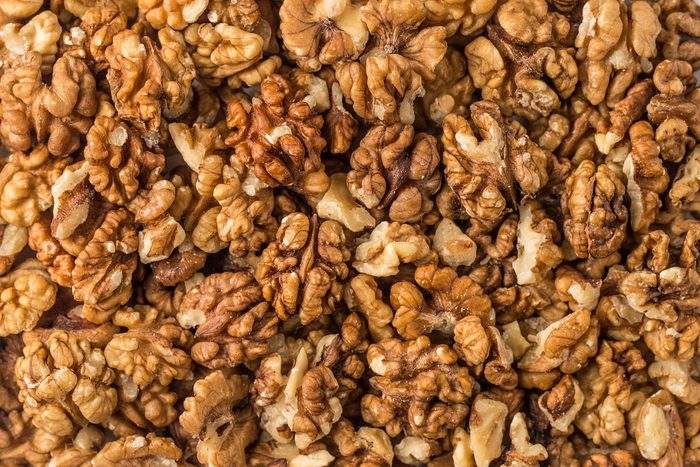
2. Walnuts and flaxseed
Nuts and seeds are an excellent plant source of omega-3 fats, which help to reduce inflammation and increase blood flow to the uterus, thus boost fertility, says Anderson-Haynes. You can incorporate walnuts and flaxseeds on top of oatmeal, salads, power bowls, in trail mix or smoothies.
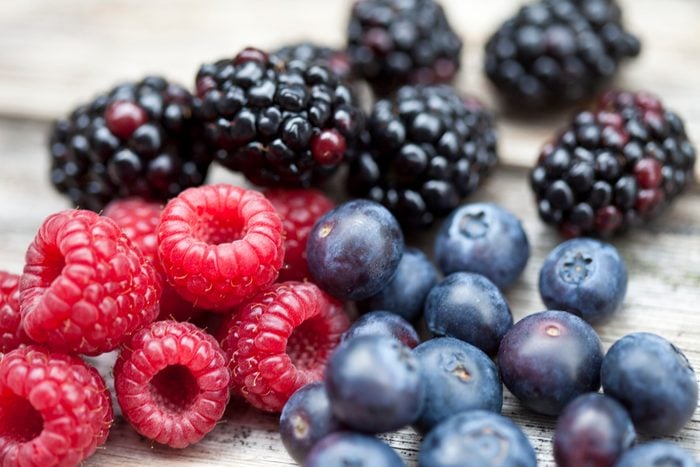
3. Blackberries, blueberries and grapes
When you’re looking for fruit this summer (or shopping in the produce aisle or frozen section any time of year), aim to include blackberries, blueberries and grapes. Anderson-Haynes says these fruits in particular are high in anthocyanins, which work to improve blood flow by dilating blood vessels. Anthocyanins are the blue, red, or purple pigments found in plants which help reduce inflammation. A 2017 study demonstrated how important these fruits are to add into your diet to help reduce inflammation and disease.
Raupp also suggests including other antioxidant-rich fruits and veggies, like berries, any leafy green vegetable, beets and sweet potatoes. These foods optimize egg and sperm quality by boosting cellular function, as well as negate the environmental toxins in our world that can wear on your system.
Eating This Fruit Once a Day Can Decrease Bad Cholesterol, Says New Study

4. Dark, leafy greens
Folate (vitamin B9) is one of the most important nutrients you need for pregnancy to prevent biological defects and miscarriage. Anderson-Haynes says leafy greens are a good source of this key nutrient that supports the synthesis of DNA, RNA and protein synthesis. If you’re trying to get pregnant, it’s the perfect time to get in the habit of incorporating more spinach, lettuce, and collards into your dishes each day.
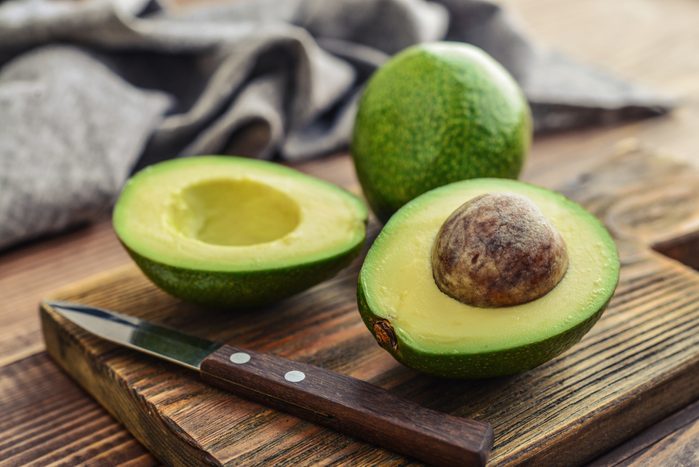
5. Avocados
Avocados are great for fertility. This 2017 study shows that avocados are abundant in “good fats,” called monounsaturated fat, and other nutrients like potassium, vitamin B6, and fiber—nutrients that are essential prior to pregnancy and during pregnancy.
Raupp suggests aiming to include lots of different healthy fats into your daily diet like organic, cold pressed olive oil, avocado, ghee, coconut oil, avocado oil and full fat dairy (if well-tolerated). “These foods are imperative to optimal egg and sperm quality, as well as cellular function and hormonal production,” Raupp says.
How Much Does IVF Cost in 2023? Fertility Doctors Share the Pointers to Consider
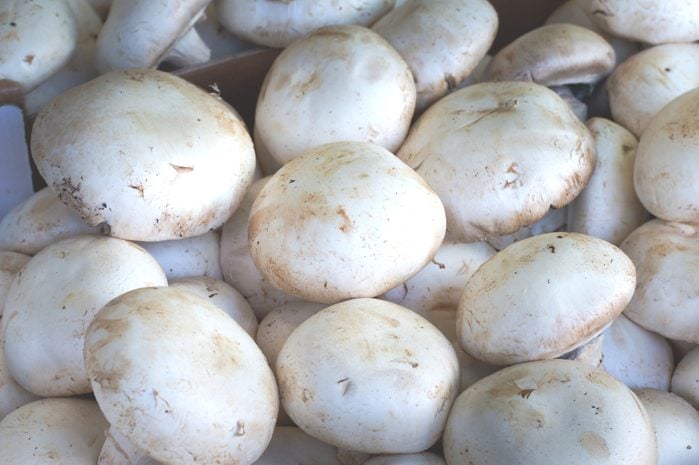
6. UV-treated mushrooms
Something you might not have thought to include are UV-treated mushrooms. Anderson-Haynes says UV-treated mushrooms are a source of vitamin D, which improves fertility and maternal and fetal health outcomes. One 2022 obstetrics and endocrinology study found that both male and female vitamin D levels played a role in fertility and affected the outcomes of in vitro fertilization (IVF).
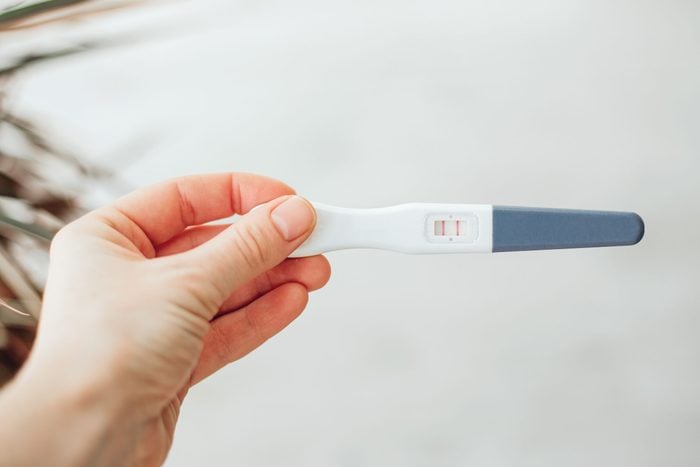
More lifestyle tips for couples trying to get pregnant
Food plays a very important role in fertility, but so does your day-to-day lifestyle. For a more well-rounded approach to fertility, experts share their greatest suggestions for healthy lifestyle changes to incorporate that also have an impact on fertility.
Anderson-Haynes encourages:
- getting proper sleep
- being more physically active
- proper stress management
- maintaining a healthy weight
- avoiding alcohol and
- reducing exposure to endocrine disruptors, which are found in items like beauty and cleaning products. (Read The 6 Best Hormone-Safe Sunscreens, Recommended by Doctors)
“Endocrine disruptors negatively affect the control center of our hormones—the endocrine system, which includes the sex organs,” shares Anderson-Haynes. She further explains how “endocrine disruptors are abundant and are found in items like cookware, takeout containers, plastic bottles, furniture, receipts, beauty and cleaning products, so it is wise to take steps in identifying them and reducing them as much as possible.”
Raupp agrees and says that “shifting to non-toxic, organic, all-natural food and personal care products is one of the most important lifestyle changes that have the biggest impact on fertility and pregnancy outcomes.”
Get The Healthy @Reader’s Digest newsletter for wellness wisdom brought to you daily, and follow The Healthy on Facebook, Instagram, and Twitter. Keep reading:
